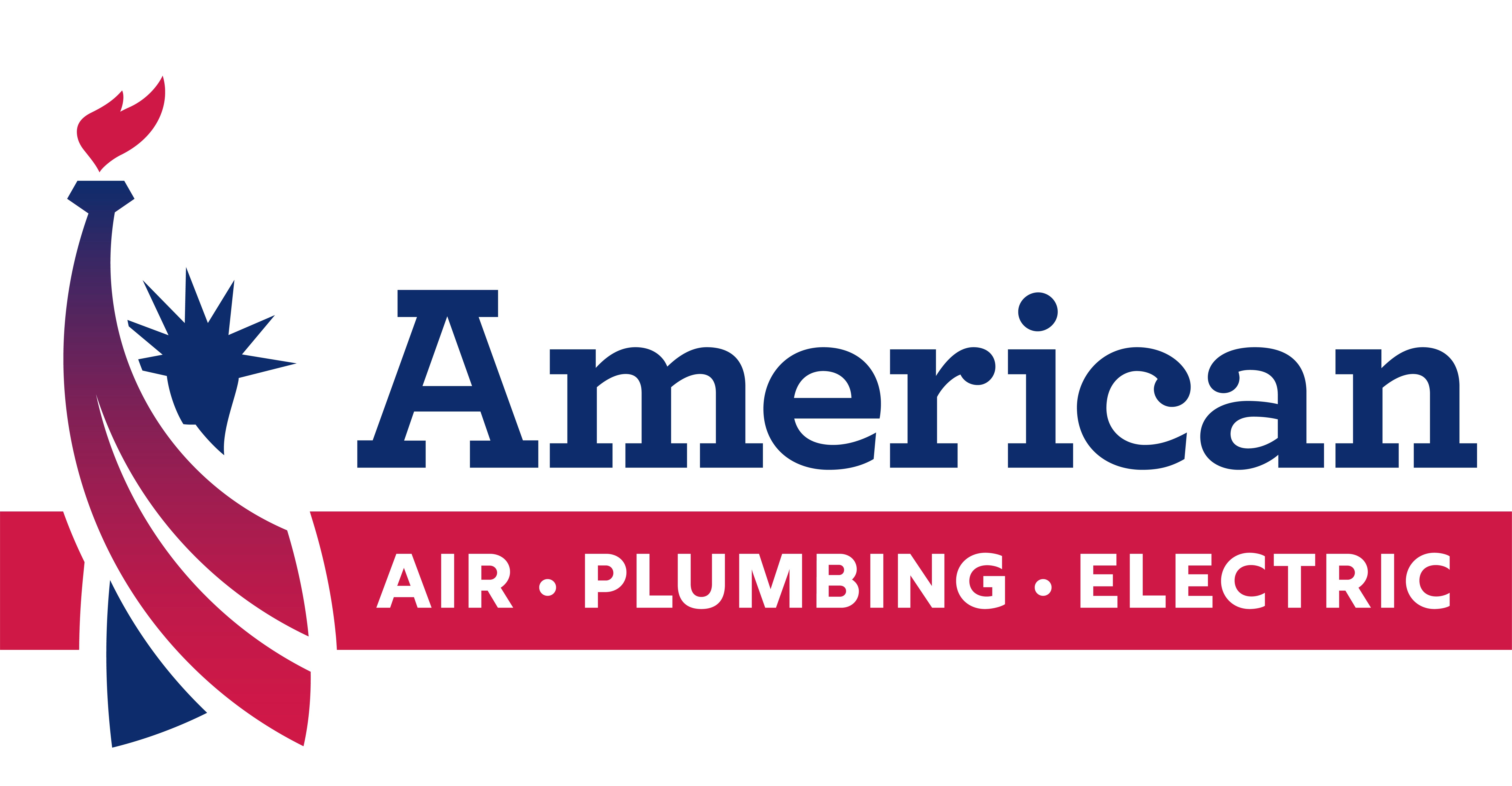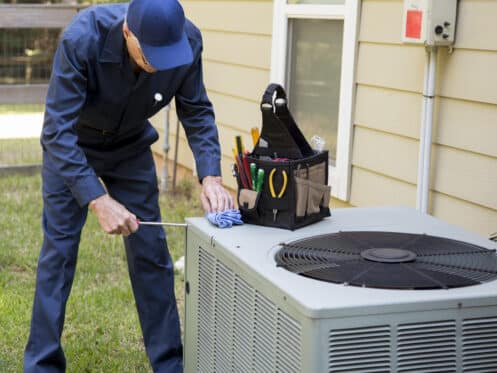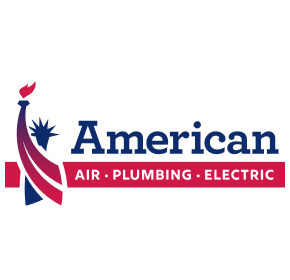Is your AC unit refusing to power on? It’s a frustrating feeling sitting in your home sweating while temperatures scorch outside. If your AC unit isn’t turning on, there could be a number of issues present. From smaller fixes to more complex repairs, an AC unit not turning on can ruin the comfort level in your home and potentially indicate underlying problems with your home’s cooling system. Let’s take a look at several reasons why your AC unit might not power on and what your AC technician can do about it.
Thermostat Malfunction
A malfunctioning thermostat can prevent the AC unit from turning on by failing to communicate the chosen temperature to the internal AC system. Common issues include dead batteries, wiring problems, or faulty sensors. Whatever the cause, a thermostat malfunction ruins the thermostat’s ability to regulate temperature accurately. HVAC technicians can diagnose thermostat malfunctions by checking the wiring, recalibrating the settings, or even replacing the unit if necessary.
Faulty Capacitor
A faulty capacitor can also be the culprit behind your AC unit won’t turn on. Capacitors are important internal components that provide a boost of energy and power for your AC unit to turn on. Without the capacitor firing properly, your compressor and fan motors won’t start. If you notice that your motor seems to be struggling to run, this may be the issue. You may also notice leaking or bulging. HVAC technicians can run capacitance tests to determine if your capacitor is faulty. If the capacitor is faulty, it cannot be repaired. It will need to be replaced to fix your AC unit. If you live in or near Sanford, FL, reach out to us at American Air, Plumbing, and Electrical. We’d love to help you.
Tripped Circuit Breakers
A tripped circuit braker or blown fuse is a common reason why AC units won’t turn on, and this could be the problem with your unit. Fuses and breakers protect electrical circuits from overloading by interrupting the electricity when too much current flows through them. If a fuse blows or a breaker trips, it stops the electrical supply to the AC unit and keeps it from turning on. HVAC technicians can identify this issue with a visual inspection and a multimeter test.
Faulty Wiring
Faulty wiring is another common issue that prevents an AC unit from turning on. It can show up in numerous ways, including loose connections, poor wiring configurations, and bent or frayed wiring. If the wiring isn’t working properly, then the electricity will not flow properly to other areas. The wiring of your AC unit must be tested and reconfigured in order to make sure your AC unit can turn on properly.
Condensate Overflow Switch
The condensate overflow switch is important for preventing water damage to your AC unit (and the area around it). When the condensate drain becomes blocked or the pan fills up, the switch detects the excess water and shuts off the AC unit to prevent an overflow. A malfunctioning or poorly installed condensate overflow switch can lead to water leakage and potential damage to the AC unit. We recommend that HVAC technicians routinely inspect and test the condensate overflow switch during maintenance visits to make sure that it is working properly. This protects both your unit and your home from water damage.
Refrigerant Leak or Wrong Refrigerant Type
A refrigerant leak or the incorrect refrigerant type can cause an AC unit to malfunction and fail to turn on. A refrigerant leak interferes with the AC unit’s ability to transfer heat effectively. This means that your AC unit may turn on intermittently, but the cooling performance will be limited or nonexistent. Using the wrong type of refrigerant can also lead to the same issue (and potentially damage your compressor enough to require a full compressor replacement). HVAC technicians can address this by reviewing your refrigerant type, refrigerant lines, and level of refrigerant.
Frozen or Dirty Evaporator Coils
Both frozen and dirty evaporator coils can make it impossible for an AC unit to turn on. When evaporator coils accumulate debris, the airflow is restricted, and the heat exchange isn’t able to happen. Also, if moisture accumulates on the coils and freezes, it can further limit airflow and make it impossible for the unit to work. HVAC technicians can diagnose and fix issues with frozen or dirty evaporator coils to restore the proper functionality of the AC system. To prevent this from happening in the future, regular maintenance, including cleaning the coils, is recommended.
Blocked Air Filter
A blocked air filter can limit airflow in your AC unit and lead to issues turning it on. Over time, dust, debris, dirt, hair, and dander all collect in the filter and make it impossible for air to pass through. This restriction puts a strain on the system and can trigger a shutdown as a safety measure. Regularly replacing or cleaning the air filter is important for maintaining proper airflow and preventing AC malfunctions. HVAC technicians can assess and address blocked air filters to ensure that your system turns on and properly cools your home.
Faulty Contactor
The contactor in an AC unit is responsible for supplying power to the compressor. If the contactor isn’t working properly, your AC unit will not turn on. If the contactor is worn or damaged, it may work intermittently because it’s struggling to properly transmit the electrical signals needed to run your AC unit. HVAC technicians can diagnose and replace faulty contactors.
System Age
Aging components, wear and tear, or lack of maintenance can contribute to various system failures that prevent the AC from turning on. Older AC units might experience more frequent breakdowns due to worn-out components and diminished efficiency. Aging systems often need more frequent maintenance and repairs to keep them operational. Ultimately, upgrading to a newer, more energy-efficient system may be the best solution if your AC unit is older. We expect most AC units to last ten to fifteen years, although with proper maintenance, some may make it up to twenty years.
Poor Installation
Not all contractors and technicians are well-versed in AC unit installation. If your AC unit was installed by a jack of all trades and not a technician who routinely installs AC units, it may be have been installed correctly. Misplacing or misordering components within the system can lead to cooling leaks, faulty wiring, and a host of other issues. The best solution for poor installation is to call a reputable HVAC company such as American Air, Plumbing, and Electrical to re-install your unit.
Contact Us Today
The ability to turn on your AC unit whenever you want and get cool, crisp air flowing is important as temperatures rise. Feeling comfortable in your home, regardless of blistering hot temperatures outside, is one of the best feelings during warm summer days. If you need to fix your AC unit because it won’t blow cold air or you need preventive maintenance to ensure your AC unit won’t give out in the middle of a heatwave, you want American Air, Plumbing, and Electrical in Sanford. We provide high-quality AC repair, AC maintenance, and AC installation throughout the Central Florida area. We can also handle all aspects of your heating and indoor air quality needs. Contact us today, and we’ll make sure that your home is as cool and comfortable as you want it to be all summer long.


